The Tlalpan History Museum is a comprehensive museum of one of the City’s most important and well documented areas. It was renovated in 2020 to better present the collection, and the many temporary exhibits that enliven its hallways. The same renovations also improved the La Paz Market which faces the history museum.
The building, called La Casona, dates from 1874. But it’s the result of the Reform Laws of 1847 that the property was wrested from the San Agustín de las Cuevas church, which had owned the entire block. Upon subdividing the property, a man named Carrión purchased some 1,200 square meters and built La Casona on the southwest corner of the block. The owner lived there until the 20th century, but between 1910 and 1915 it was occupied by the Queretaro novelist Heriberto Frias.
Throughout the 20th century, the building continued to change hands. In 1986, it was named a historical monument by the National Institute of Anthropology and History. In 2000, the Alcaldía of Tlalpan purchased the property, intending to convert it to use as a cultural center, and the Cultural Division of the alcaldía still has offices in the building. In 2003, they opened it as the Museo de Historia Tlalpan, although it’s mostly functioned as a host for temporary exhibits.
While the history of Tlalpan in many ways turns around a principle archaeological site at Cuicuilco, that settlement was founded in about 200 BCE. Much of the north of Tlalpan’s history remains locked beneath the Pedregal lava fields that resulted from the Xitle volcano eruptions about 400 years later.
The 19th century saw the rise of industrialization, with a first factory in Santa Ursula Xitla. This was alongside the present day Fuentes Brotantes National Park. Later, the paper mills that depended on the Bosque de Tlalpan came to be. All of this history is the subject of the museum of today.
The Tlalpan History Museum is at last functioning as a museum dedicated to better understanding this important region and its people. The rehabilitation added a retractable roof to the central courtyard. It also reveal a historic floor of green quarry stone, in one corridor. This type of stone was thought to be exclusively in the state of Oaxaca.
Hours: Daily 10 a.m. to 6 p.m.
 difusion_tlalpan@hotmail.com
difusion_tlalpan@hotmail.com
 55 5485 9048
55 5485 9048
 https://www.facebook.com/pages/Museo%20de%20Historia%20de%20Tlalpan/1178363778990583/
https://www.facebook.com/pages/Museo%20de%20Historia%20de%20Tlalpan/1178363778990583/
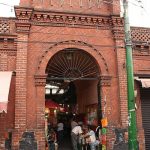
Nearest at 0.05 kms.
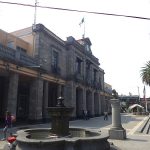
Nearest at 0.07 kms.
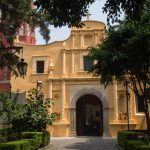
Nearest at 0.08 kms.
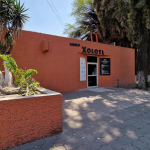
A spectacular little museum dedicated to the ancient Tenayuca ruins.
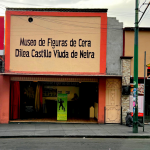
More than a wax museum, the Misterios collection is a thundering reverberation from the past . . .

A museum dedicated to the history of Mexican finance . . .
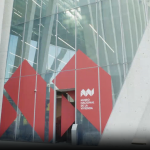
A museum dedicated to Mexico's long history of housing and living.
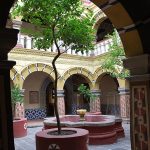
Not just the Museum of the Interventions and a fascinating military history, it's a fascinating monastery too.